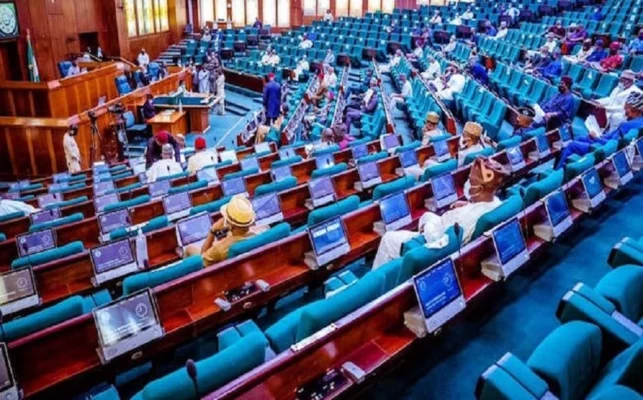The House of Representatives has resolved to investigate alleged smuggling activities by personnel of the Nigeria Customs Service (NCS).
The House took the decision at a plenary session on Wednesday following the adoption of a motion of urgent public importance sponsored by the member representing Badagry Federal Constituency, Lagos State, Oluwaseun Whingan.
Whingan cited an incident involving a journalist in Badagry, Lagos state earlier this month who was assaulted while attempting to make video recording of activities at a location he described as a “smuggling zone.
Justifying the need to support the motion, the Lagos lawmaker stated that a report by an online newspaper, Sahara Reporters, on November 18, 2024, “Exposed the mass smuggling of over 2,000 cars carrying 6,500,000kg of rice through Badagry under the watch of Customs officers.”
He added that “Videos published by investigative journalist, Fisayo Soyombo provided evidence of customs officers’ complicity in these illegal activities.”
He continued, “Reports of brutality have emerged, including an incident along the Badagry-Seme Expressway on December 1, 2024, where officers from the Nigerian Customs Service, in collaboration with soldiers, violently assaulted two transporters, Taofeek Olatunbosun and Rafiu Abdelmalik.
“The victims were suspected of documenting smuggling activities, leading to threats against their lives and a standoff that required intervention from residents and police.
“Smuggling has severe economic consequences, including undermining local industries, reducing government revenue, promoting unfair trade practices, and flooding markets with substandard and potentially harmful products.
“The actions of some officers within the Nigerian Customs Service contravene its core mandate, erode public trust and raise concerns about the oversight of joint security operations involving military personnel.”
Whingan added, “Despite the presence of multiple checkpoints during the day, particularly in Badagry and other border communities in the nation, economic activities and legitimate trade are paralysed by excessive scrutiny and extortion by Customs officers and other law enforcement personnel.

“At night, these same officers reportedly enable or turn a blind eye to rampant smuggling activities, undermining public trust and perpetuating economic hardship on small businesses, such as rice farmers and poultry producers who are unable to compete with the influx of contraband goods, leading to job losses and impoverishment.
“The complicity of customs officers in smuggling operations and the use of violence to intimidate civilians pose significant risks to national security, economic stability, and the rule of law.”
He argued that the integrity of the Nigerian Customs Service is essential for securing Nigeria’s borders, facilitating legitimate trade, and upholding the economic and social well-being of the nation.
With the adoption of the motion, the House mandated its Committee on Customs and Excise and Defence to investigate the operations and activities of the Nigerian Customs Service across Nigerian borders, “With a specific focus on smuggling activities, allegations of complicity, and incidents of brutality and report back within six weeks for further legislative action.”
The lawmaker who moved the motion raised eyebrows over the behaviour of the Customs officers.
Among other things, he called for the investigation of the Nigerian Customs Service’s legal framework and the activities of officers of the agency while carrying out their duties
The motion has however been referred to the Committee on Customs and Excise.
READ ALSO: Senate declares Okpebholo’s seat vacant, asks INEC to conduct election
Also during plenary, a bill to amend the Corrupt Practices and Other Related Offences Act, 2000 to provide for compulsory counselling and training for convicts of corruption-related offences scaled second reading in the lower chamber.
The bill was sponsored by Hon. Akiolu Moshood Kayode, representing Lagos Island.
Leading the debate during plenary on Wednesday, Kayode said the bill seeks to amend Section 67 of the Principal Act by expanding it with additional three provisions which stipulate that magistrates and judges shall not only sentence convicts of corruption-related offences to imprisonment and/or fines but shall also impose on them a mandatory period of counselling and training.
Speaking on the general principles of the bill, Kayode clarified that the compulsory anti-corruption counselling and training of persons convicted of corruption-related offences are in recognition of the strong connection that exists between mental disposition and the primitive accumulation of wealth.

